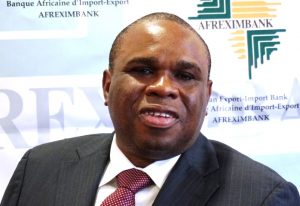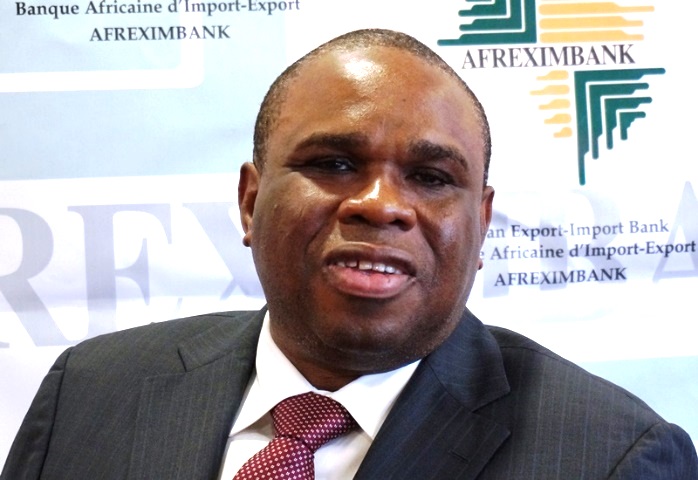The African Export-Import Bank (Afreximbank) says it will put up a financial mechanism to ensure the completion of Nigeria’s Digital Switch Over (DSO) project before the end of the year.
Prof. Benedict Oramah, Afreximbank president, disclosed this in Cairo, Egypt, when Lai Mohammed, minister of Information and Culture, led a team of DSO stakeholders on bilateral discussions on the project.
In April 2021, the National Broadcasting Commission (NBC) launched free set-top boxes as part of the digital switchover (DSO) in Lagos. The initiative was to enable millions of Nigerians who cannot afford the subscriptions of Pay-TV platforms to enjoy digital television with good content from 60 channels.

Oramah said Afreximbank was impressed by the presentation and will make Nigeria a model for other African countries for DSO project financing.
He said: “The move toward digital television is global, and it was impressive to see the seriousness with which the minister has been pursuing this.”
“I have had several meetings with him in France, Nigeria, and he has come here with a very powerful delegation involving all the stakeholders.
“What we are looking out to do is to work with all the stakeholders, particularly the private sector, to put a financing mechanism in place to ensure that Nigeria saves more than $400 million of subsidy that would have been applied.
“When we are able to do this before the end of the year, the Nigerian government will benefit because we are going to free the spectrum that will be now sold for about two billion dollars to telecommunication companies.
“We assure you that we will put in place the financial structure that will work because we know that if we do it well in Nigeria, other African countries pursuing the same goal will take a cue from there.”
Oramah added that supporting the DSO project would create a platform that would accelerate the growth of Nigeria’s creative industry.
On his part, Mohammed noted that the creative industry is key in the diversification of Nigeria’s economy because, after agriculture, it employs a larger number of people, mostly women and the young population.
He said the project would also bridge the digital divide by establishing more equitable access, connecting the unconnected at the underserved and remote communities.
The minister recalled that at the beginning of the programme, the model adopted by the government, which was subsidy driven was not sustainable.
“When the programme started, government subsidised the STB, which was bought from the manufacturers for $30 per box and sold to consumers at $10 per box,” he said.
“Government was also paying the signal distributors and the middleware providers, but the subsidy regime can no longer be sustained.
“Right now, the government is not going to give any financial support again to the project, and that is why we have reengineered and rejigged the programme in a manner that it will be commercially viable.
“Government will only give support to the project in the areas of regulations, advocacy and formulation of policies.
“For instance, we have already amended the Broadcasting Code to protect local manufacturers, advertisers, and channel owners.”
Godfrey Ohuabunwa, chairman of STB Manufacturers in Nigeria, who presented the credit requirement to the Afreximbank, said they would require a total of $165 million.
According to him, $125 million is expected to fund an initial five million STB from the total of 20 million boxes needed in five years.
He said the signal distributors would require $30 million as well as $10 million for marketing and promotion.


